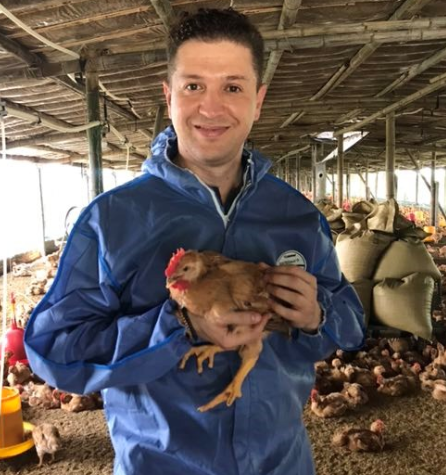Biosecurity is integral to protecting Australia’s unique ecosystems and ensuring the sustainability and competitiveness of all its agricultural exports. The recent avian influenza outbreak has highlighted the importance of skills to care for individual flocks in protecting the biosecurity of the larger poultry industry.
In its 2022-2027 Chicken Meat Program Research Development and Extension Plan, AgriFutures identifies ‘enhancing biosecurity, health and welfare’ as one of the key priorities of the poultry industry.
In response to this and other calls from industry for improved skills in prevention of biosecurity incursions, Skills Insight and MINTRAC are undertaking this project to deliver free workshops for chicken meat and egg producers around the country and online. Workshops will focus on the role of on-farm flock safety measures in safeguarding the biosecurity of the broader industry.
Participants will come together to create or review their on-farm Biosecurity Management Plans. This gives industry in each region the opportunity to collaborate and share best practice, uplifting the biosecurity of the entire industry. Content for the workshops will draw on already existing resources.
Insights gained from this project will be used to inform further work by Skills Insight in supporting biosecurity skills across the industries we serve.
We recognise the threat that a biosecurity and emergency animal disease incursion would have on the poultry industry and fully support all initiatives to uplift preparedness, awareness, and responsiveness to biosecurity risks within the sector. We believe this project represents a valuable opportunity to deliver education, knowledge, and skills training to influence industry practice change in biosecurity management and planning.
– Dr Mary Wu, Chief Executive Officer of the Australian Chicken Meat Federation (ACMF)
Next steps
Project activities have been impacted by the recent Avian Influenza incursions across Victoria, with industry prioritising a nationwide biosecurity response. Therefore, some of the planned activities have been adapted.
Project goals
The project aims to:
Timeline

Poultry industry bodies have identified the prevention of biosecurity incursions as a key priority. In response, Skills Insight and MINTRAC are undertaking this project to deliver free biosecurity management planning workshops around the country and online.
The workshop covers key practices and principles of biosecurity, along with case studies. Participants leave with a documented Biosecurity Management Plan, which they develop during the training. Stakeholders who already have a biosecurity management plan in place are encouraged to conduct an assessment on its currency and thoroughness, and consider opportunities to update or improve the plan.
The one-day training exercise is organised around the following modules:
- Module 1: Introduction to biosecurity
- Module 2 :Pathways for entry and managing risk
- Module 3: Key phases of biosecurity management
- Module 4: Biosecurity management planning
- Module 5: Case studies.
Work to date
A group of industry leaders and experts was convened to guide this project. Following initial research and consultation, the project team developed a lesson plan, facilitator’s resource and learner’s workbook in consultation with this group.
A pilot version of the workshop was delivered in Brisbane in May. Feedback was collected from this workshop to refine the course outline and content prior to national delivery.
Workshop progress
Workshops were delivered across a number of locations in 2025. Post‑workshop check‑ins are now underway to assess training outcomes. Further workshops in Tasmania and online are scheduled for early 2026.
The workshop has been designed to provide best practice guidance for biosecurity management and planning for:
For any questions, contact the Project Lead, Mick Crouch [email protected]
This stage has not yet commenced.
At the finalisation stage, final checks are conducted and the outcomes of the project are submitted to the Department for consideration. Following this, outcomes are published or enacted.
Project team

Mick Crouch
Project Lead
MINTRAC
[email protected]

Tugrul Durali
Project Technical Consultant
Avian Management

This Skills Insight JSC project is being managed with the support of MINTRAC as part of their collaborative partnership with Skills Insight. MINTRAC has a strong history working with the Australian meat processing industry on skills and training solutions and have been engaged by Skills Insight to deliver this project in partnership.